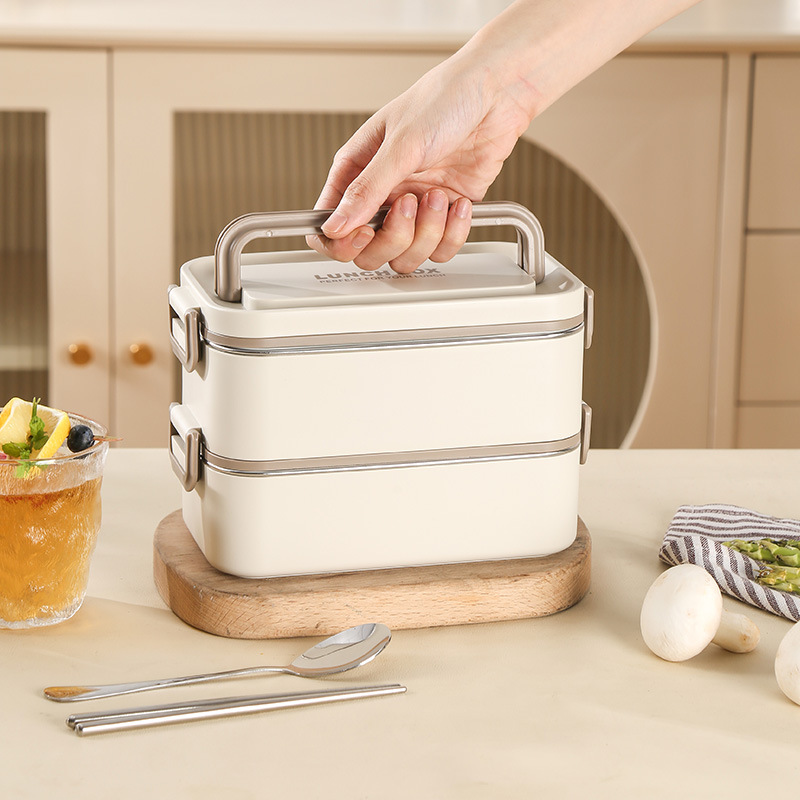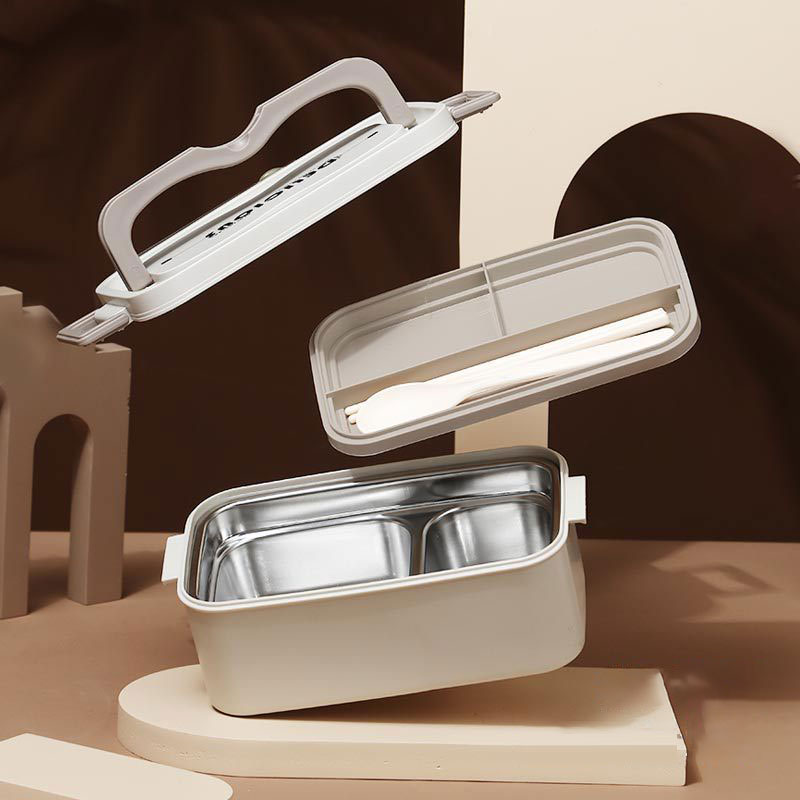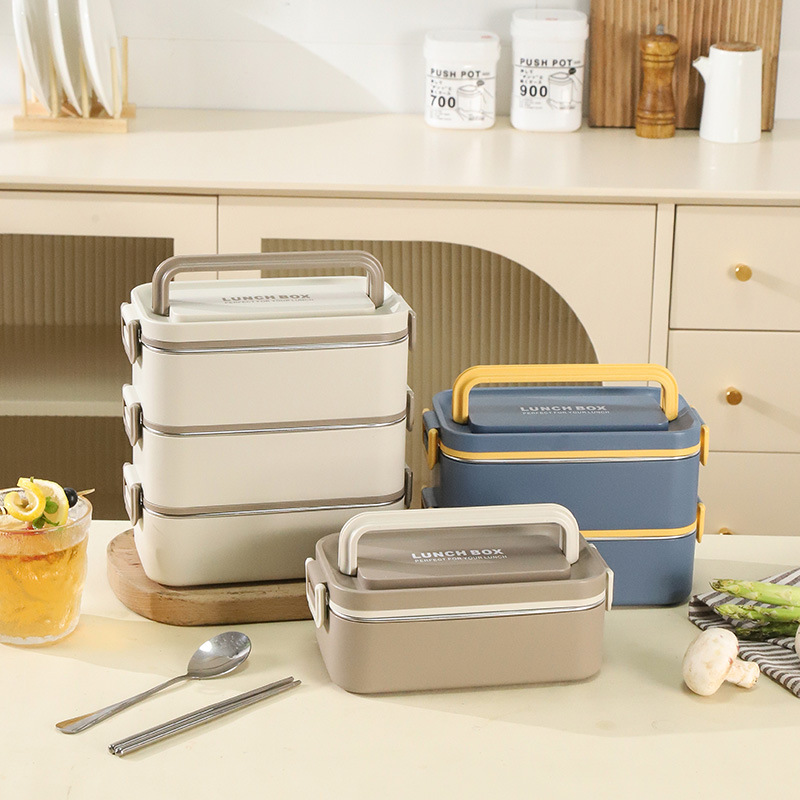Introduction
When it comes to lunch box, choosing the right material is crucial to ensure freshness, safety, and convenience. Two popular options, stainless steel and glass, both have their advantages and considerations. In this essay, we will compare stainless steel and glass as food storage materials, examining their durability, transparency, microwave compatibility, and overall suitability for various storage needs.

- Durability: Stainless steel is renowned for its exceptional durability. Its resistance to rust, corrosion, and dents makes it a reliable choice for long-lasting food storage containers. On the other hand, glass, while sturdy, is more prone to breakage. Accidental drops or impacts can result in shattered glass, making stainless steel a better option for individuals seeking robust and durable food storage solutions.
- Transparency: Glass containers offer the advantage of being transparent, allowing users to easily identify the contents without opening the container. This transparency can be particularly useful when organizing a refrigerator or pantry. In contrast, stainless steel containers are not transparent. While some models may come with clear lids or transparent sections, they generally do not provide a full view of the stored food. However, labels or color-coded systems can be employed to compensate for this limitation.
- Microwave Compatibility: Glass containers are generally considered microwave-safe, allowing for convenient reheating of leftover meals. The ability to heat food directly in the container eliminates the need for transferring food to separate microwave-safe dishes. On the other hand, stainless steel containers are not suitable for direct microwave use. To heat food in a stainless steel container, it must be transferred to a microwave-safe dish. Although this adds an extra step, using a separate microwave-safe dish ensures food safety.
- Insulation: Stainless steel containers have excellent insulation properties, helping to retain the temperature of hot or cold food for extended periods. They can keep food warm or chilled, making them suitable for picnics, camping trips, or long workdays. Glass containers, while not as effective at insulation, are better at maintaining the temperature of food in comparison to plastic containers. However, they may not be as efficient as stainless steel in retaining heat or coldness.
- Cleaning and Maintenance: Both stainless steel and glass containers are relatively easy to clean and maintain. Stainless steel resists staining and is dishwasher safe, making it convenient for everyday use. It does not retain odors or flavors from previous meals. Glass containers are also dishwasher safe and do not absorb odors or flavors. However, glass surfaces may be more prone to staining over time. Additionally, both materials can be hand-washed using mild detergent and warm water.

Conclusion
Both stainless steel and glass serve as excellent options for lunch box, but their strengths lie in different areas. Stainless steel excels in durability, longevity, and insulation, making it ideal for individuals seeking long-lasting containers that can withstand frequent use and transportation. Glass, on the other hand, offers transparency and microwave compatibility, allowing for easy identification of contents and convenient reheating.
Ultimately, the choice between stainless steel and glass as food storage materials depends on individual preferences, needs, and priorities. Those prioritizing durability, longevity, and insulation may find stainless steel to be the better option. Meanwhile, those who value transparency and microwave compatibility may find glass containers more suitable. Regardless of the choice, both materials provide viable solutions for effective and safe food storage.
It is worth noting that personal preferences and specific requirements may vary. Considering factors such as durability, transparency, microwave compatibility, insulation, and ease of cleaning will help individuals make an informed decision based on their unique needs and circumstances.


